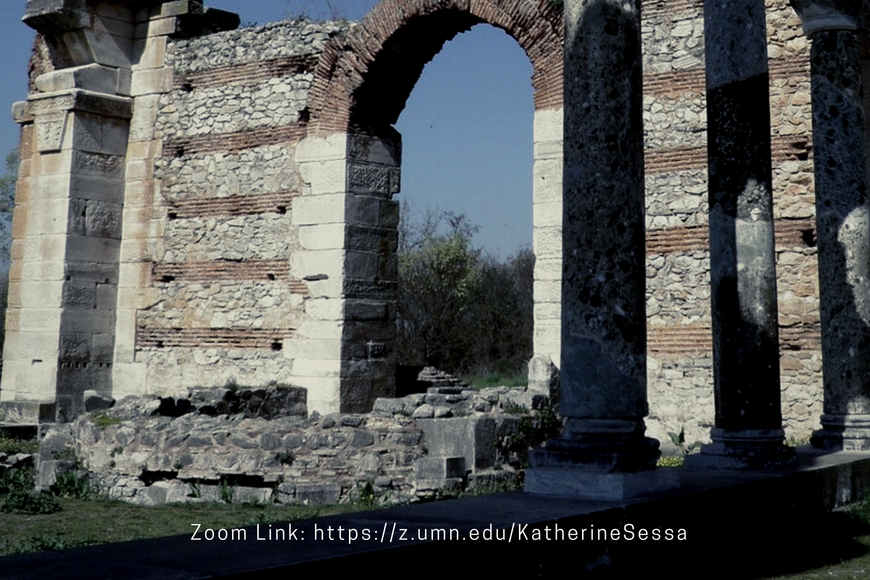CMS Digital Talk: Kristina Sessa (History, The Ohio State University)
Title: “The Justinianic Plague and the End of Antiquity? Recent Research and New Directions”
Abstract: The Justininiac Plague (541 to ca. 750 CE), a recurring pandemic ofYersinia pestis infection that impacted communities across the Mediterranean reaching as far north as Britain, has played a central role in narratives about the "end of Antiquity" and the beginning of the "Dark Ages." While recent palaeogenetic research has provided answers to many questions about the plague's molecular identity, development, and geographic reach, historians remain starkly divided over the disease's social, cultural, and economic impact on the late Roman Empire. In this presentation, I will outline the current "maximalist" and "minimalist" positions on this question, explore some of the challenges of integrating genetic research into historical analysis, and suggest several possible new paths forward that may allow us to obviate the debate over whether the Justinianic plague did or did not contribute to the "fall of the Roman Empire."
Bio: Kristina Sessa, an associate professor of history at The Ohio State University, is a cultural and social historian of the late Roman Empire. She has written on the late antique papacy, daily life in Late Antiquity, and on the recent swell of environmental explanations of Rome's putative "decline and fall." She is currently writing a book about disaster and war in the history and historiography of Late Antiquity.
